Idea by
Maegan Icke, Cosimo Campani, Joe Brennan, Lucie Beauvert
CHORUS
http://www.rca.ac.uk/schools/school-of-architecture/architecture/ads-themes-201516/ads5/
Call for ideas 2016
Chorus
Chorus
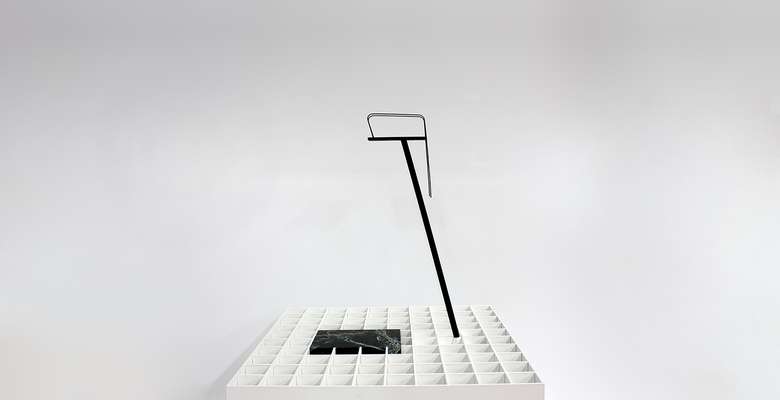
Script:
The city becomes a platform. A platform is an empty ‘form’, physical, digital or conceptual, open for a ‘plot’ to take place. It is a naked plane which can be seen as a theatre stage, bare but functional, onto which various backgrounds pull out depending on location and issue we choose to address.
The global issue that is occupying the front of the stage is climate change, and we are the chorus, equally resolute as the group of performers in Classical Greek drama, commenting upon this issue with a collective voice.
The tools we have available to trigger the attention in each and every city are generic features that we know as urban furniture. The street objects behave as an index of their context and morph into climate change reminders.
CHORUS is a principle that we propose in order to test a methodology of contextual research. One pilot case has already been realised for a development scheme in London. We are now keen to re-iterate the exercise in other contexts.
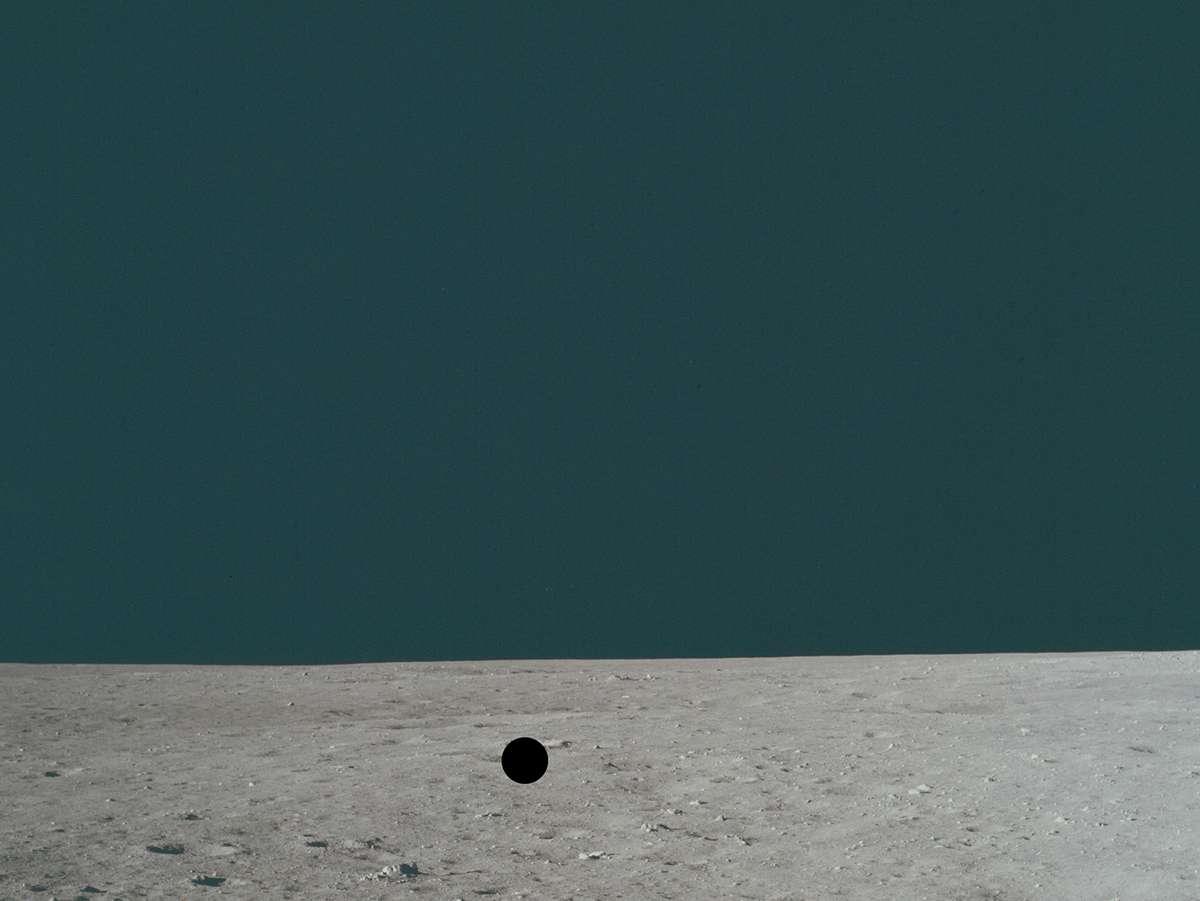
Here starts the diagrammatic illustration of how our principle unfolds during a pilot case. In a given location, we first imagine removing all legible context to ask ourselves how we can indicate directions in a hard to navigate landscape.
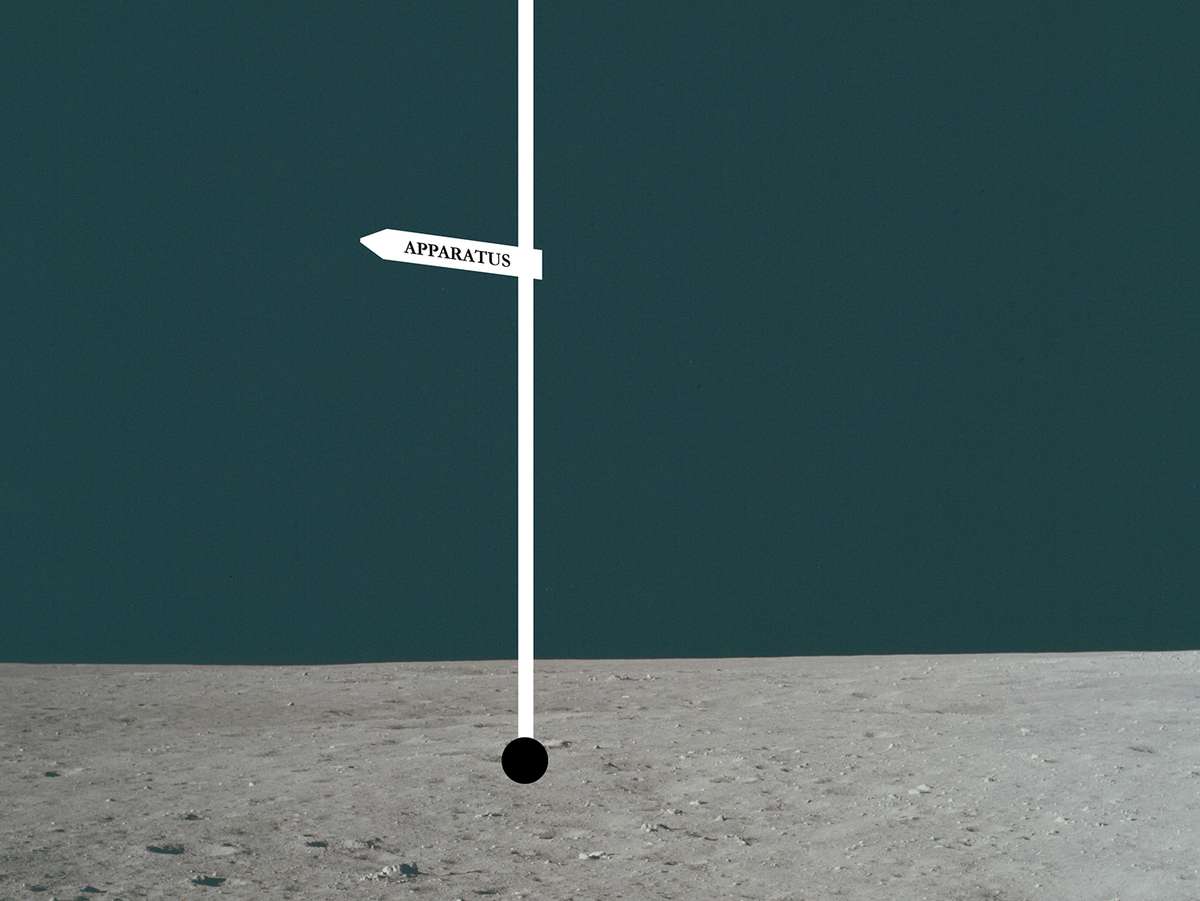
From this starting point, we erect a pole which plays the role of the apparatus. The pole could be understood as a rig, a mast, a lamp post, a tent pole, or perhaps a crane boom. It is a supporting structure and a directional tool, supporting navigation.
As a system of implementation drawn from the generic language of urban street objects, it never holds the viewer's attention, but rather redirects the focus to what it is pointing at
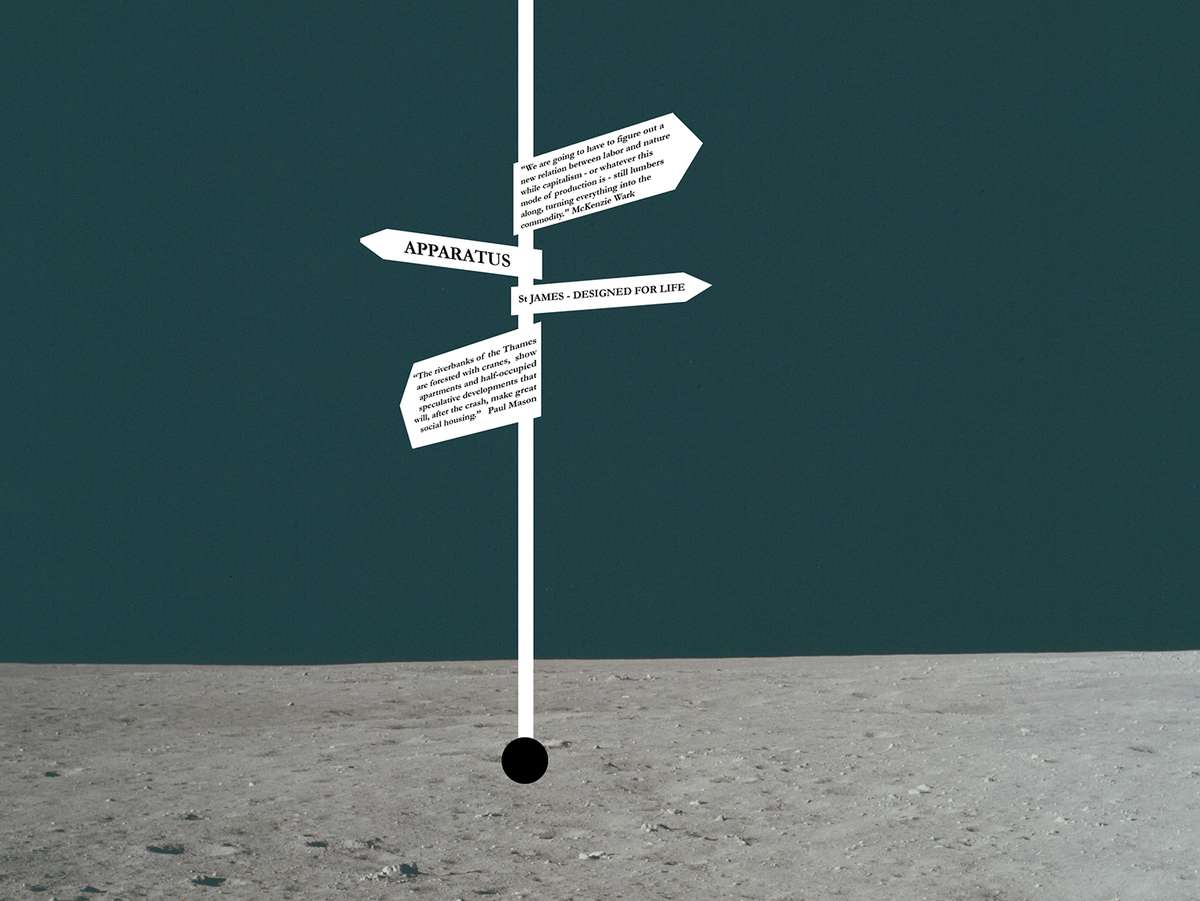
The object functions as an index, pointing at its context, quoting present-day trends to exaggerate their traits and to inform an understanding of the near future. Instead of the object changing according to its environment, it indexes the changing environment through a fixed predetermined object.
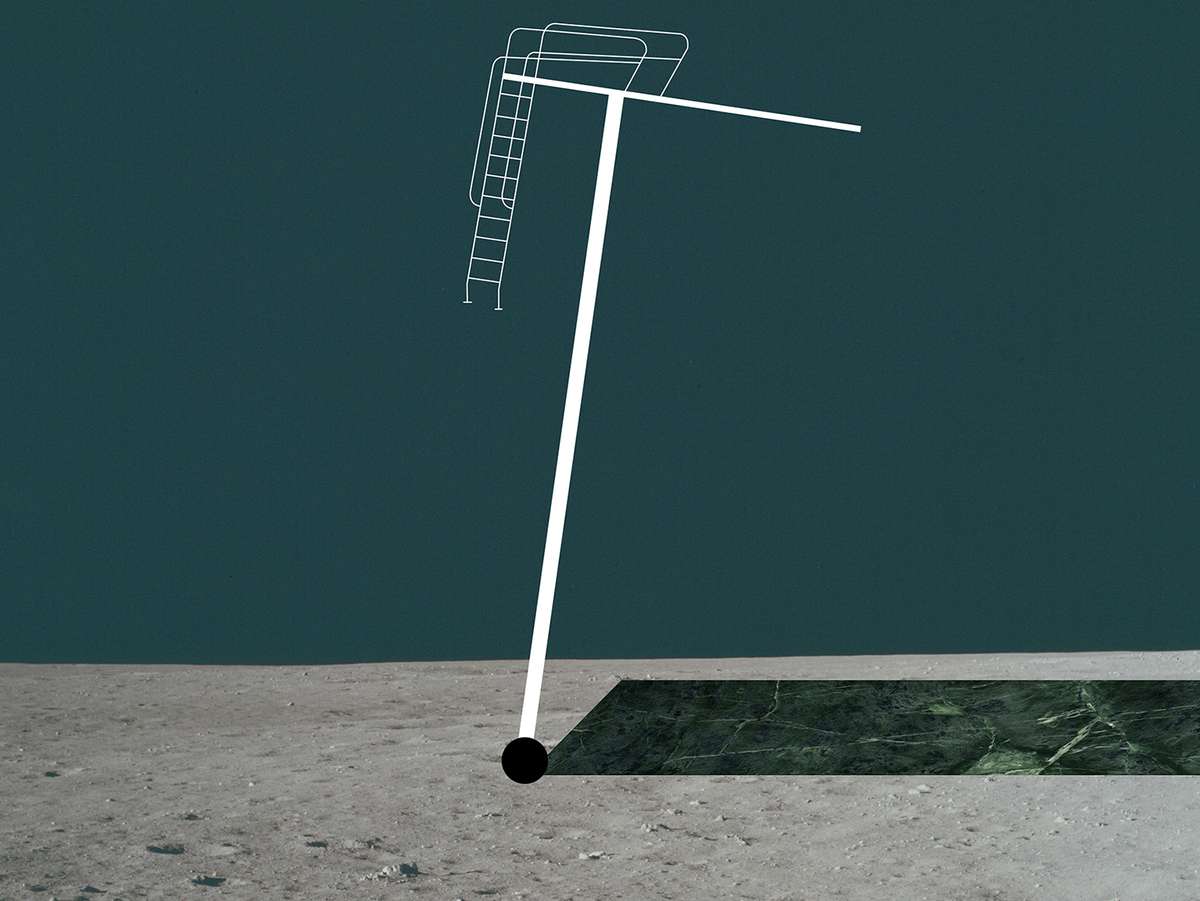
On top of the pole is a physical platform. It was shaped for our pilot case, a proposal for a public space intervention situated along the river Thames, on Albert Embankment in London and being pitched meanwhile in Paris the United Nations were gathering for the COP21 and storm Desmond was severely devastating the North of England. Hence the apparatus took the form of a diving board.
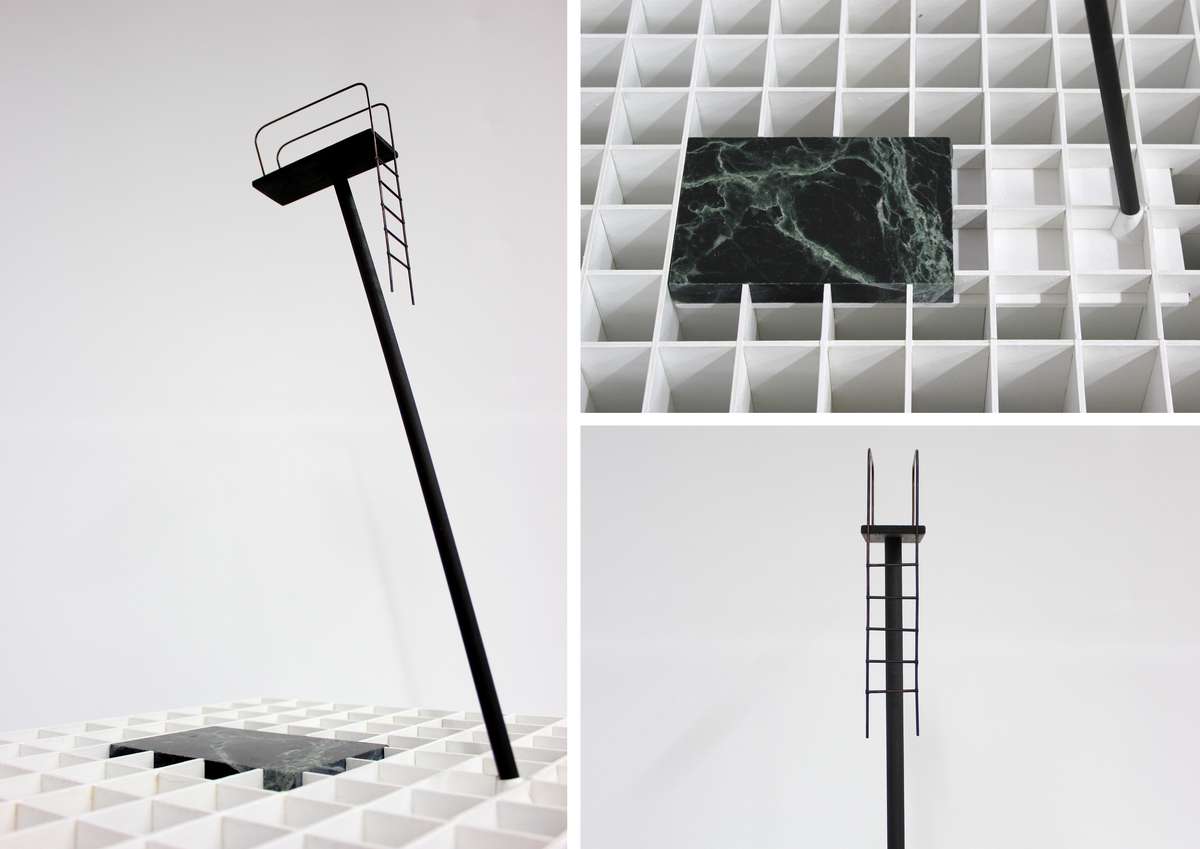
The diving board, here represented with a 1:20 model, becomes a physical datum, a reminder to present inhabitants, and a monument to a dramatic future that has not occurred yet.
Chorus
Chorus

Script:
The city becomes a platform. A platform is an empty ‘form’, physical, digital or conceptual, open for a ‘plot’ to take place. It is a naked plane which can be seen as a theatre stage, bare but functional, onto which various backgrounds pull out depending on location and issue we choose to address.
The global issue that is occupying the front of the stage is climate change, and we are the chorus, equally resolute as the group of performers in Classical Greek drama, commenting upon this issue with a collective voice.
The tools we have available to trigger the attention in each and every city are generic features that we know as urban furniture. The street objects behave as an index of their context and morph into climate change reminders.
CHORUS is a principle that we propose in order to test a methodology of contextual research. One pilot case has already been realised for a development scheme in London. We are now keen to re-iterate the exercise in other contexts.
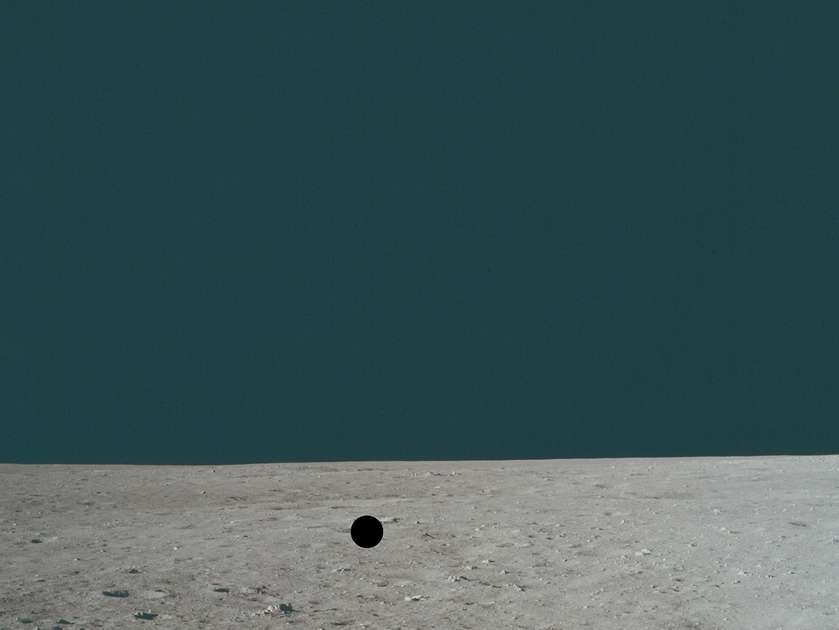
Here starts the diagrammatic illustration of how our principle unfolds during a pilot case. In a given location, we first imagine removing all legible context to ask ourselves how we can indicate directions in a hard to navigate landscape.
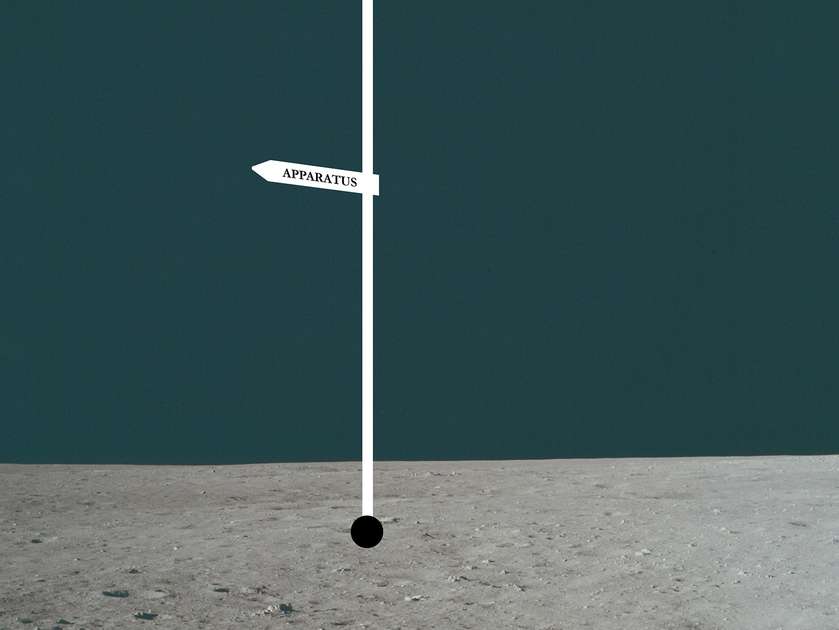
From this starting point, we erect a pole which plays the role of the apparatus. The pole could be understood as a rig, a mast, a lamp post, a tent pole, or perhaps a crane boom. It is a supporting structure and a directional tool, supporting navigation.
As a system of implementation drawn from the generic language of urban street objects, it never holds the viewer's attention, but rather redirects the focus to what it is pointing at
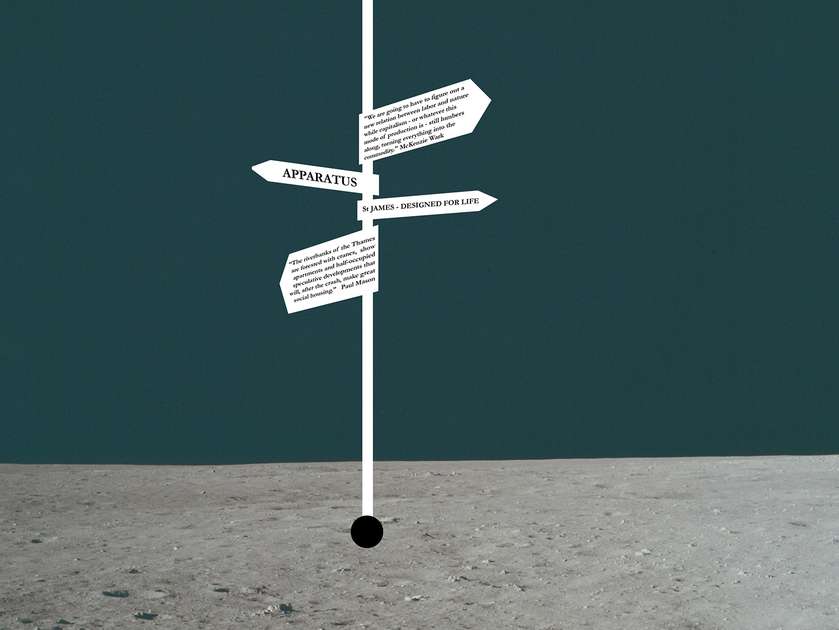
The object functions as an index, pointing at its context, quoting present-day trends to exaggerate their traits and to inform an understanding of the near future. Instead of the object changing according to its environment, it indexes the changing environment through a fixed predetermined object.
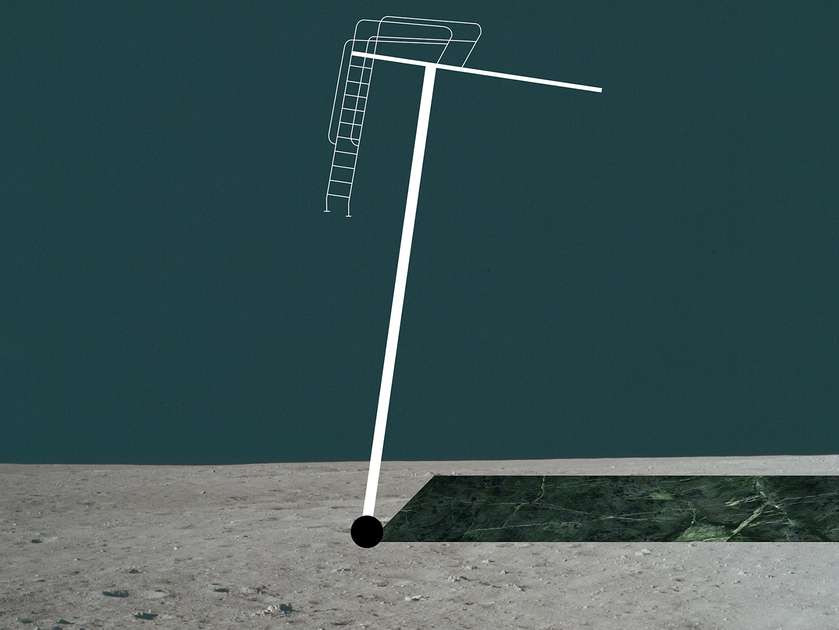
On top of the pole is a physical platform. It was shaped for our pilot case, a proposal for a public space intervention situated along the river Thames, on Albert Embankment in London and being pitched meanwhile in Paris the United Nations were gathering for the COP21 and storm Desmond was severely devastating the North of England. Hence the apparatus took the form of a diving board.
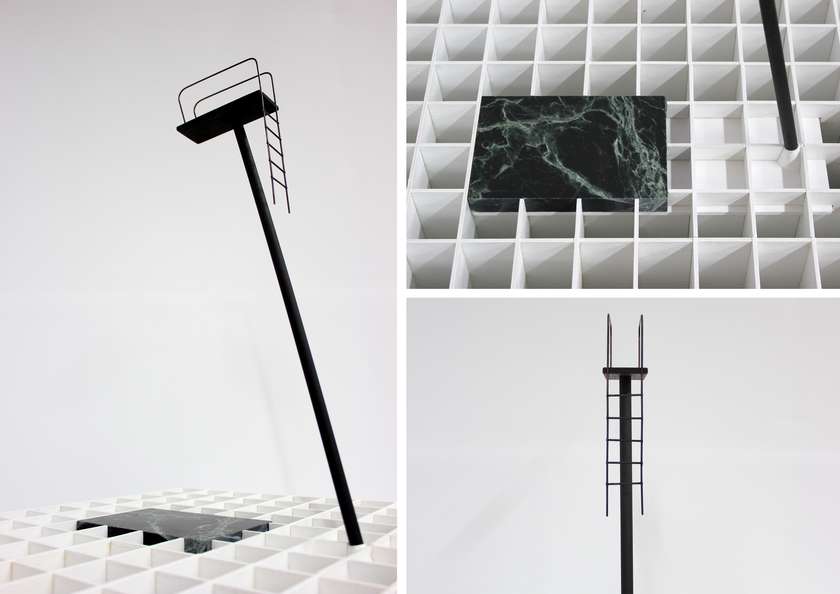
The diving board, here represented with a 1:20 model, becomes a physical datum, a reminder to present inhabitants, and a monument to a dramatic future that has not occurred yet.